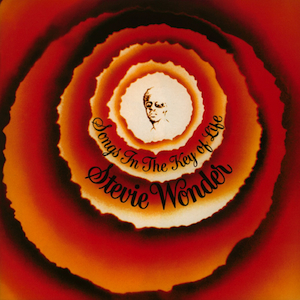By Lauren Kostiuk
Stevie Wonder’s classic album, “Songs in the Key of Life,” brings together the richness of uplifting melodies and soulful harmonies to create a masterpiece of joyful love, as well as a vibrant statement of racial and spiritual change.
The Motown legend’s eighteenth album was his longest and most impressive to date, with two LPs and an additional “bonus” EP adding up to 21 songs. Wonder arranged, produced, and wrote or co-wrote every song on the album; he also sang all of the leads and the majority of the backing vocals. (There are cameo appearances by Herbie Hancock, Deniece Williams and George Benson.) Most importantly, at a time of deep racial and political tensions, he crafted an impressive collection of anthems that try to inspire change through the sheer glowing strength of their positivity.
The first track, “Love’s in Need of Love Today,” opens up with a serenade of light and beautiful harmonies giving the feeling of a bright, sunny Sunday morning. One of the longer cuts on the album, the track starts slowly and softly as the rhythm increases to the point where Wonder’s charged vocals grab hold: “Good morn or evening friends/Here’s your friendly announcer/I have serious news to pass on to everybody/What I’m about to say/Could mean the world’s disaster/Could change your joy and laughter to tears and pain.” He’s trying to inspire the spread of love and the elimination of hate, a theme throughout the album.
As on previous recordings such as “Innervisions” (1973) and “Talking Book” (1972), Wonder’s classic, simplistic love songs dominate, among them “Knocks Me off My Feet,” “Ebony Eyes,” “If it’s Magic” and “Another Star.” In “As,” he emphasizes his dedication to love by vowing, “I’ll be loving you always/Until the day is night and night becomes the day” and “Until the rainbow burns the stars out in the sky.” Like a lot of his longer cuts, the song has a lot of repetition toward the end, but the rhythm propels it and the uplifting vocals create a delightful feeling of joy and unforgettable romance.
The second record begins with Wonder’s newborn baby girl Aisha crying and the lyrics, “Isn’t she lovely/Isn’t she wonderful/ Isn’t she precious/Less than one minute old.” His fatherly joy radiates and a soft glow emerges from his effortless vocals as the song is orchestrated with a thumping drumbeat and cheerful harmonica playing. In 1995, Wonder told Q magazine that, “Of all the albums, ‘Songs in the Key of Life’ I’m most happy about.” And his pride is justified.
“Songs in the Key of Life” demonstrates the artist’s growth from the naivety of “Little” Stevie Wonder into one of pop’s most profound philosophers and producers, as well as one of the most socially conscious artists of his time. His quest for social and spiritual change in America through the power of love and community remains inspiring, and it’s as necessary today as it was when the album was first released.














